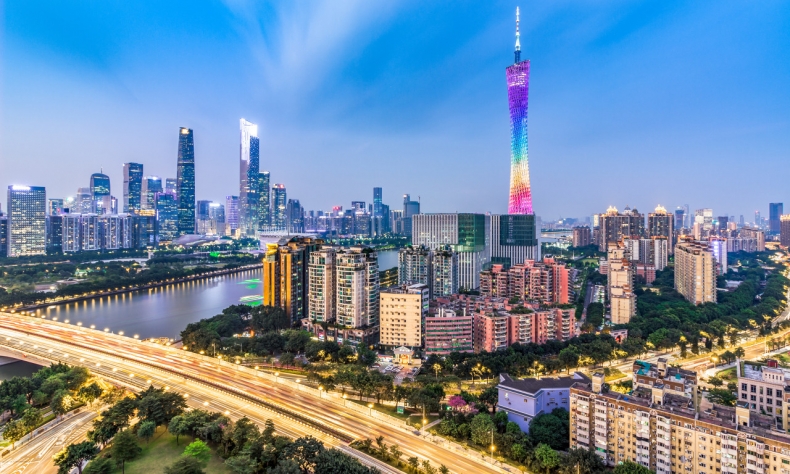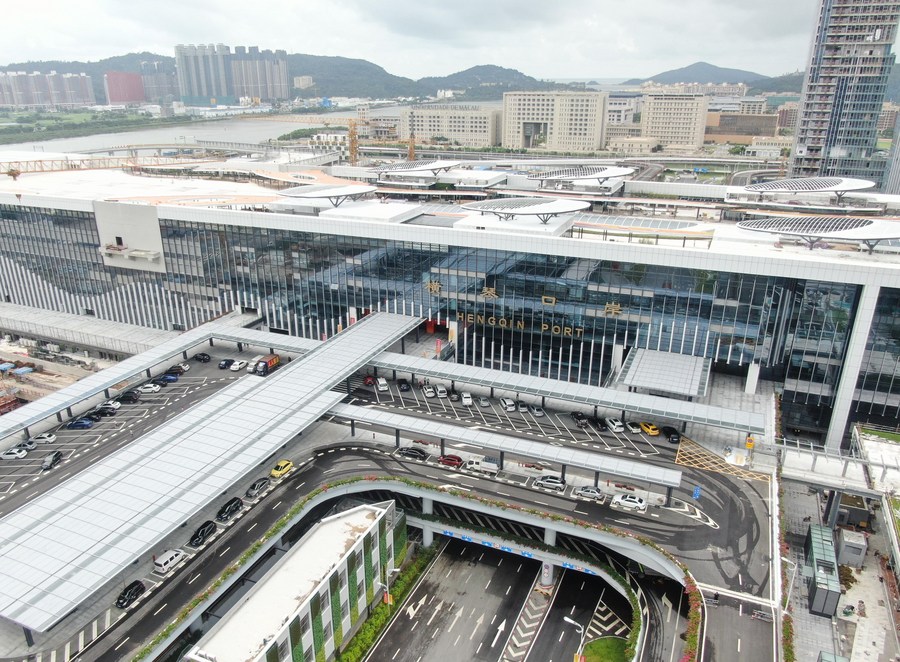Talent Puts the “Great” in China’s Greater Bay Area

China’s Greater Bay Area continues to thrive, thanks in part to favourable policies that have helped attract the best talent.
Situated at the southern tip of China and covering an area the size of Croatia, sits the Guangdong-Hong Kong-Macao Greater Bay Area (GBA) – one of the largest integrated bay area economies in the world.
Like its name’s sake in San Francisco and Tokyo, GBA was implemented to integrate monstrous economies – in this case the province of Guangdong, and the special administrative areas of Hong Kong and Macao – into a single, dynamic economic zone. Since its launch in July 2017, GBA has undergone an enormous transformation, with colossal infrastructure projects and the promotion of high-tech innovation connecting these areas to a greater extent than ever before.
Thanks to its extensive portfolio of world-class enterprises, including Chinese stalwarts like Huawei and WeChat, the area has become a key focal point of the Chinese economy – currently accounting for 12 percent of China’s GDP – and one that is expected to be worth $4.62 trillion by 2030.
Much of this success can be attributed to the calibre of entrepreneurs, businesses and top talent the area has been able to attract in recent years. Local governments in Guangzhou, the surrounding district of Nansha and the megacity of Shenzhen, have played a crucial part in recruiting this talent thanks to a slew of favourable policies.
More Hong Kong and Macao talent in Chinese Mainland
These policies have been particularly successful in attracting talent from the administration areas of Macao and Hong Kong, whose skills and experience of international business practices – having worked in China’s original gateways to the rest of the world – are invaluable for Guangdong’s aspirations to further open-up.
Yet for King, a business consultant for GBA companies, their move to the mainland is mutually beneficial, providing Hong Kong and Macao entrepreneurs with access to an enormous consumer market.
“Ten or twenty years ago, Hong Kong companies would focus on foreign countries’ markets,” says King, who moved to Nansha in 2019. “They would produce their products in China and then sell them to foreign countries. But now it has changed. China is now a very big market, and doing business [in China] is very different to other countries.”
That growing market of 70 million consumers in GBA is what Hong Kong and Macao businesses are trying to cut a slice of, and something local governments are helping them to attain. In Nansha district, Guangzhou, commercial hubs have been established to do just that, providing favourable policies to help them get off the ground.
“Hong Kong residents that set up a business [in Nansha] can get a 1,500 yuan grant every month. They also have access to elite apartments, pay zero rent and buy apartments with shared ownership on individuals,” the latter of which is exclusively for Hong Kong and Macao residents only, King explained.
Free interest loans, rent-free office space and help in accessing start-up funds has made Nansha one of the go-to areas for businesses looking to get a foot in the GBA door. With its easy access to Shenzhen and Guangzhou, as well as a relatively inexpensive cost of living, it has become a favourite start-up location for Hong Kong and Macao’s budding entrepreneurs.
It was enough to make Hong-Kong born entrepreneur Kenny Tam up and move in 2018, a decision he says has transformed both his businesses and family’s lives.
“Given the skyrocketing prices in Hong Kong, I could only afford to rent an apartment of merely 200 square feet (18 square meters) years ago,” Tam said. “Today, I live in a house in Guangzhou for almost the same amount of rent.”
Tam credits Nansha with speeding-up the development of his smart wine-dispensing machine by 6-months, having encountered problems in Hong Kong, as well as placing him closer to his desired target market. “Our survey shows huge market potential, with a demand for 20,000 to 30,000 machines nationwide,” Tam said.

Greater international talent to GBA
Integrating top-talent from Macao and Hong Kong into China’s mainland is however only part of GBA’s positive recruitment drive.
Attracting more international entrepreneurs into Guangdong has long been highlighted as key to unlocking the future development of GBA.
But across from Hong Kong Bay, the city of Shenzhen is fast rivalling the administrative region as a hotbed for international talent. In recent years, Shenzhen has earned a growing reputation for first class incubation facilities, greater administrative services aimed at non-Chinese workers, and an improved business culture, according to Dr. Zhang Ling, Director of the Shenzhen Talent Support Office, helping it attract more foreign talent.
“The Chinese system is trying very hard to provide a rules-based business environment for not only businesses owners in China but also from all over the world,” Dr Zhang said. “Everything here is new and we are combining all these things to create a good rule-based business environment.” This includes, according to Dr Zhang, easier access to capital, favourable policies for foreign graduates and numerous incubators and R&D platforms for international entrepreneurs to make use of.
Greater reciprocity
But one of the biggest areas of improvement has been creating an improved level-playing-field between foreign and domestic companies – a historic bone of contention for many foreign enterprises.
One person who has witnessed this first hand is entrepreneur Karen Quinn, who moved to Shenzhen with her family in 2008. In the 13-years since setting-up her company in Shenzhen, Quinn has seen the gap narrow, especially since the passing of the 2020 Foreign Investment Law.
“The 2020 Foreign Investment Law made it more level playing, putting foreign companies on an equal plane with local companies,” Quinn said. “There has been a big move to put information into English so, now we [international businessmen] can access the correct information. More transparency and making it a little easier to establish companies are moving [things] forward.”
Intellectual Property Right (IPR) protection has also been a long-standing source of contention for foreign entrepreneurs, but those concerns too are being addressed. Last week, Shenzhen further strengthened this area by introducing the first property rights framework to cover personal data across the country, and for Quinn, it is improvements like this that prove things are heading in the right direction.
“Every country has issues and its challenges … But there are quite a few things here that give me confidence. Rome wasn’t built in a day but policies are changing, and they are making efforts.”
Challenges still exist in GBA’s efforts to attract international talent – not just those based in Hong Kong and Macao – and yet as Quinn and Tam have shown, changes are afoot. And with further improvements expected in the near future, it seems the opportunities for talent in China’s Greater Bay Area are only going to become greater.
 Facebook
Facebook
 Twitter
Twitter
 Linkedin
Linkedin
 Google +
Google +







